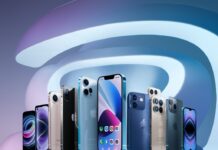Apple recently released a preview version of the upcoming iOS 10, which is expected to come out with the launch of a new phone in September. The software, which was previewed at the just ended Apple annual developers conference, however, comes bearing a surprise for security researchers and developers; it has the whole part of its operating system, the kernel, unencrypted.
No user information in iOS 10 Kernel
An Apple spokesperson told reporters that the kernel cache was not containing any information of users therefore if the developer’s unencrypted it, they would be able to optimize the system’s performance all without compromising anyone’s security and privacy.
The company has managed to keep all the inner workings of the kernel-blurred in the previous versions of the iOS through the use of encryption. This has largely left researchers and developers in the dark about the iOS. The kernel is responsible for the security, and it reduces the various ways applications which are on the iPhone and iPad can access the hardware of the device. Therefore it is definitely a crucial part of the operating system.
In most instances, encryption is thought to be translating into security, but the lack of it in the iOS 10 doesn’t mean they won’t be secure. It simply means developers and security researchers will have a pop at the system, and any flaws and vulnerabilities will be brought to light quickly, which paves a way for them to be resolved quickly.
The move of leaving the kernel without encryption is surely a rare move by Apple. The company is known to be so secretive in its work that some researchers wrote in the MIT Technology Review that they believed the company had made a mistake. The researchers, however, said if by any chance it was a mistake it would be practically unbelievable. They likened the ‘mistake’ to forgetting to put doors on an elevator.
Apple is clearly moving towards greater transparency. This might be affected by its recent battle earlier this year with the FBI over unlocking the iPhone of a San Bernardino shooter who killed 14 people last December. The FBI tried to make Apple unlock the phone, and the company refused. To explain his decision, the CEO of Apple, Tim Cook wrote an open letter to the users saying that he needed to let the customers know what was going on.
The act of opening up the kernel code would surely reduce the market flaws like the one that the FBI discovered in the San Bernardino case. It could certainly mean a quicker fix to flaws and a secure phone for Apple’s customers.









